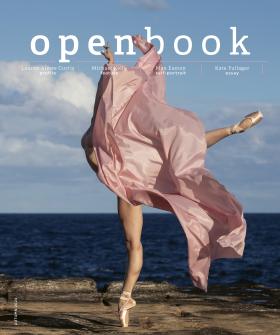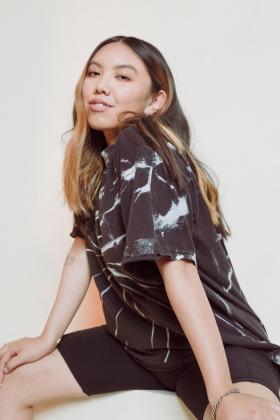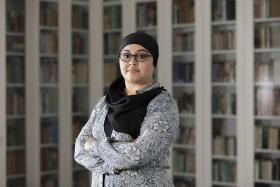Most people have a rather romantic image in their minds of a ‘food writer’. It’s probably even more glamorous than the cafe-hopping, pen-twirling poet or novelist, because it’s all that plus dinner and drinks. And, like modern art, lots of people think ‘I could do that too’.
The day I spoke to Lee Tran Lam she had ‘a restaurant story’ due that night that needed to be rewritten because of the latest lockdowns, seven podcast episodes of The Unbearable Lightness of Being Hungry to edit and upload, ‘a bunch’ of Q&As for the Diversity in Food Media website to finalise, her Sunday night FBI radio show Local Fidelity to plan, and some ‘pay-the-bills’ style copywriting that needed attention.
Her most regular bylines these days are with SBS Food and the Sun Herald; having worked on InsideOut magazine and the Good Food website while building her portfolio for more than a decade, she’s now a freelancer. Her Instagram account @leetranlam is a solid-gold resource for food news and dinner ideas, and a good portion of her working life is spent elevating the voices and cuisines of the displaced and underrepresented. In other words: no, not many people could ‘do it too’.
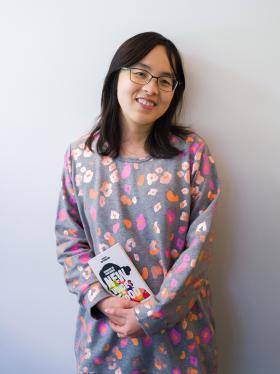
When she interviewed chef Arthur Tong recently, he spoke about the ‘cultural void’ that comes from ‘rejecting all this knowledge, rejecting your culture’. It’s something a lot of people with migrant parents have gone through, he told her: ‘As a much older person, I think, “Oh my god, I completely appreciated the wrong thing”.’
Like many Australian writers (myself included) Lee Tran got her first-ever byline in Voiceworks, a literary journal for writers under 25. It was back in 1996, with her short story ‘Without Appetite’. ‘I did a degree in print media,’ she explains to me with a laugh when I ask her about her career progression, ‘which is pretty funny because no one would offer a degree in print media now.’ Another foundational component of her ongoing ethos was her beginning in zines — small handmade magazines — at the age of 16. ‘I think that really has influenced a lot of what I do,’ she says. ‘Because anyone can do it. If you can use a photocopier, you can make a zine.’
The word I would use for Lee Tran’s approach to her profession is ‘accessible’ or maybe even ‘democratic’. It’s something she thinks about a lot: who is ‘allowed’ to write at all, let alone about food. ‘I only ended up in food media because I ran a food blog for eight years before I got a “proper job”, thinking I would never get a job in food media because I wasn't someone who, you know ... I’m vegetarian. I’m not a massive drinker. I didn't grow up with parents who had a wine cellar.’
Perhaps the image most people have of ‘food writer’ is so bourgeois precisely because many food writers are unrepresentatively bourgeois. ‘I think anyone can write about anything as long as they have respect and cultural context and understanding,’ she says. ‘But so many people who cover food just have really similar lives. They’re often white, often from really privileged backgrounds. The way they spend money is not necessarily representative of how other people may spend money.’
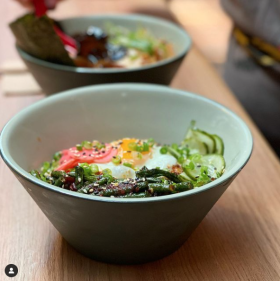
An even broader problem is the chicken-and-egg of who gets to write about food and what foods are therefore valued. Lee Tran says a 2018 article on the ABC website by Colin Ho and Nicholas Jordan — ‘Australians love Asian food, so why doesn’t it win as many awards as Italian?’ — is ‘probably the most important piece of food writing in Australia in the past 10 years’. Ho and Jordan used statistics from Gourmet Traveller, Good Food Guide and Time Out to show the overrepresentation of white chefs and European cuisines in chef-of-the-year awards and ‘hats’ given to restaurants. ‘But when you change the criteria from best eats to cheap eats,’ they write, ‘Asian cuisines dominate.’ As Lee Tran points out, ‘Asian food is only appreciated if it’s cheap. And then you kind of end up in this box where Asian food can never be anything more than cheap.’
There’s a sense of absurdity, too, when the owners of traditional food media platforms insist their system is a meritocracy. As Lee Tran argues, it only limits their potential. ‘The thing is, Australia’s food scene is so multicultural,’ she says. ‘I just think it’s richer for everyone, no matter what your background. Imagine having a dining vocabulary that includes koshari, which is Egypt's national dish, and it’s so delicious: spiced tomato sauce and fried lentils, rice, fried onions. So yum. And then knowing about kottu roti from Sri Lanka where the strips of egg are almost like noodles in a stir fry. And, you know, your life is better if it’s got za’atar in it, if it’s got furikake in it, it’s just so much more enriching and delicious.’
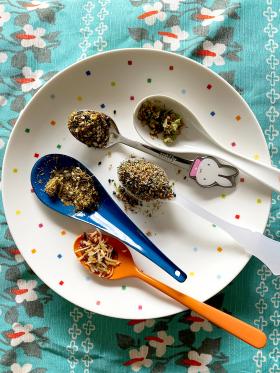
Sometimes she still gets ‘the vibe’ that institutions are doing diversity out of a sense of obligation rather than a genuine belief that it makes for better content. But she also sees some cause for optimism. Change is happening, albeit slowly.
She gives the example of the latest Good Food Guide announcing readers could expect different kinds of restaurants in this year’s publication. ‘To better reflect our dining landscape,’ the statement reads, ‘we have altered our scoring system to cover a wider range of eating experiences. We’re interested in places that are the best examples we can find of their dining style ... Expect more cuisine styles and new, diverse voices. Expect a shift in the way we have always done things. We want to showcase restaurants that represent who we are as a dining population. We believe this shift is a strong step in the right direction.’
Lee Tran and I also have a good chat about an article by Yvonne C Lam in February’s Gourmet Traveller explaining why ‘the power and privilege behind problematic restaurant names’ was damaging to the industry and culture. The story got some predictable backlash, but I remember reading it the morning it was published, and feeling thrilled that such a traditional masthead was finally willing to ‘go there’. It would seem things have changed since that 2018 article by Ho and Jordan, and Lee Tran has been a catalysing agent for progress.
I first came to know of her work only last November, just as her book New Voices on Food was about to come out. That anthology of emerging and mostly unpublished writers grew out of her brainstorming about how she could make a difference to her industry in the aftermath of the Black Lives Matter movement re-invigorating conversations about racism and representation in the Australian media.
‘That just started so many conversations about who gets heard, about diversity, representation, inclusion,’ she says. ‘And I remember feeling a little powerless because I thought, well, I’m just a freelancer. I’m not an editor who has a budget who can commission people. So what can I do? That’s when I started the Instagram account, Diversity in Food Media, where I profile people from underrepresented backgrounds.’
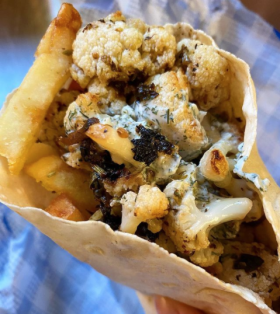
Some editors complain about ‘not knowing anyone’ to commission who isn’t white, so Lee Tran set out to remove that excuse by putting together a database of excellent talent in food writing. Then she had a conversation with the people at Somekind Press, a crowdfunded and community-based micropublisher founded in 2020 to help keep Australian hospitality venues alive and creatives busy during the pandemic. ‘I asked them, would you be interested in publishing an anthology of 10 or so contributors from underrepresented backgrounds on food, and they were so keen.’
That was in July 2020; they announced the book in September, and then there was ‘a really wild time’ for Lee Tran of being ‘up till 3 am every day going through everything’, replying to people and making sure everyone’s work was respected. ‘Sometimes it’s good to have never done something before,’ she says with hindsight and a smile. ‘Because if you knew how much time it would take you’d just be so overwhelmed.’
Despite the surplus of talent to sort through, the book came out in December, and Lee Tran also worked with Farah Celjo from SBS Food to get another 10 or so of the submitted pieces published there. ‘It was all about trying to create new avenues and trying to give people more opportunities.’ In May 2021 Sydney Writers’ Festival and Casula Powerhouse presented ‘New Voices on Food’, a panel with Lee Tran; Sweatshop member and co-owner of Southern Soul Sydney Tyree Barnette; The Lebanese Plate food blogger and ‘Spread Hummus Not Hate’ activist Lina Jebeile; and Minyungbal woman and strategist for the First Nations company Currie Country Arabella Douglas.
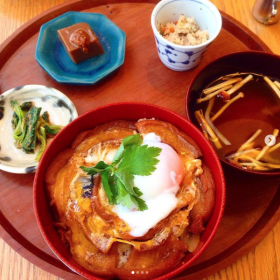
In this sense, she feels she is part of a group of people — formerly outsiders — moving up through the world and ranks of food media. Hetty McKinnon, for example, ‘who started out by selling her food on her bicycle, which she would deliver to people in Surry Hills. And then she got asked to do her Community cookbook, which she self-published. And some publishers had turned her down because they thought her book would be too narrow, right? That it wouldn’t have resonance for all of Australia outside of Surry Hills. And then look at how she’s turned out. Community has sold more than 100,000 copies.’
Lee Tran also mentions Helen Yee, who started one of the first food blogs, Grab Your Fork. ‘Isn’t it interesting,’ she says, ‘that we’re all women of colour, who kind of just ended up in food media through non-traditional means?’
These stories, these people, their zines and podcasts, their small businesses and Instagram accounts, are often more compelling because they’re genuine. ‘No one is telling you, “You need to hit this demographic” or “You have to mention these buzzwords”. You’re doing it because you’re exploring your own voice. And those things I find more powerful than something that’s been like carefully market- researched by senior management.’
An industry has to keep growing and changing if it wants to make the most of the talent and flavour the country has to offer. Fortunately for our hearts and minds and mouths, Lee Tran Lam shows no sign of slowing down.
Bri Lee’s latest book Who Gets to Be Smart is available at the Library Shop. She hosts the Library's monthly B List book club.
Catch up on past B List book club events online.
This story appears in Openbook Spring 2021.

